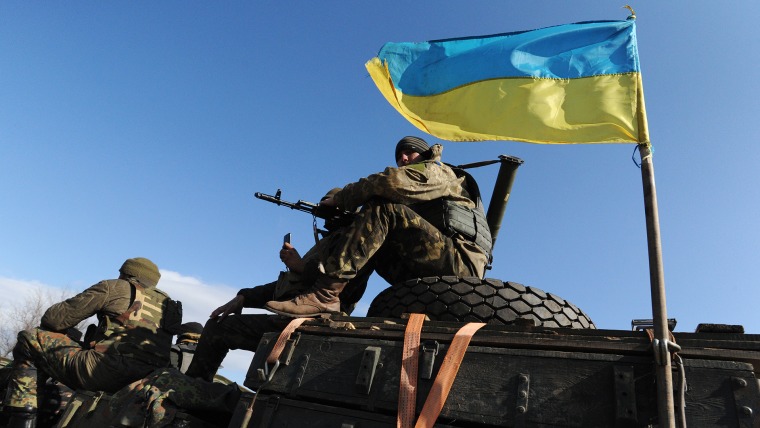
2022 was bad — but it could have been worse. This essay is part of an end-of-the-year series looking at the silver linings.
Never have I been so thankful to be wrong.
Before Russia invaded Ukraine in February — after the delivery of perishable blood to Russian units made it clear that Russian President Vladimir Putin’s saber rattling was just not an exercise, after it became clear that Russia would invade the largest country in Europe, but before the tanks started rolling — I predicted that Russia would take Kyiv quickly, possibly within a week. I was mostly convinced that the brave and strong Ukrainians would fall to the inexorable logic of numbers in war.
I was wrong.
I was mostly convinced that the brave and strong Ukrainians would fall to the inexorable logic of numbers in war.
To be fair, I had good company in being wrong; Gen. Mark Milley, the chairman of the Joint Chiefs of Staff and the senior officer in the American military privy to daily briefings by the best intelligence community in the world, was reportedly wrong, too.
So was Putin himself; the Russian leader expected such a quick victory that he may have had his officers pack their dress uniforms with their invasion gear for a victory parade in Kyiv.
Putin’s overconfidence was one of the reasons that he — and Gen. Milley, and I — were wrong about the prospect of a quick Russian victory. I’ve fought in tanks in two wars; there is no spare room for dress uniforms. Any incredibly limited surplus space should have been filled with rations and bullets. Preparing for a short war also meant that some Russian forces may literally have run out of gas on the road to Kyiv. Other planning failures included not destroying Ukrainian air defenses early in the invasion, resulting in catastrophe for the Russian air force and for airborne troops tasked with seizing the Kyiv airport as part of a quick coup de main. The Russian military did not plan for a prolonged fight.
The Russian military also did not train for a prolonged fight. Russia’s vaunted army, at least as far as Ukraine is concerned, looks like a paper tiger. Putin’s efforts to restore the Russian military to its Soviet-era glory have been marred by corruption. For months he refused to appoint a single commander in charge of the entire operation, perhaps afraid that someone with that much power might turn against his regime. Some soldiers reported being given less than an hour’s notice that they were about to engage in a shooting war. The list of Russian mistakes is nearly endless; the invasion violated nearly all principles of war, and the results have been appalling, resulting in the destruction of some of Russia’s most elite units.
Of course, the biggest reason I was wrong was the courage and skill of the Ukrainians, whose fighting fury exceeded any reasonable expectation of even the best-informed military analyst; spectacular political leadership has certainly also helped. In my partial defense, I did not underestimate the Ukrainian’s will to fight; I expected that after losing a conventional war, they would emulate my former foes in Iraq by conducting an insurgency that I predicted would ultimately bleed Russia dry. This would echo the Soviet Union’s invasion of Afghanistan 30 years ago, a disaster in which brave Afghan fighters armed with American anti-aircraft and anti-tank missiles defeated a much larger and better equipped force, eventually forcing it to withdraw in disarray and contributing to the collapse of the Soviet Union itself just a few years later.
History doesn’t repeat itself, but it sometimes rhymes. The United States is again supplying arms to a brave people resisting a Russian invasion. Three decades ago, the abject failure of Russian arms in Afghanistan helped destroy the Soviet Union; Putin’s floundering attempt to restore the glory of Soviet Empire by capturing Ukraine has done lasting economic damage to Russia and likely ends with Putin’s departure from power.
A key remaining question is whether Putin is capable of lashing out with a catastrophic escalation. But such an outrage would result in the most severe consequences for Russia and likely hasten Putin’s downfall. Like the rapid fall of Kyiv, nuclear weapons didn't materialize in 2022. And that is one thing we can be truly grateful for. So far.

No comments:
Post a Comment